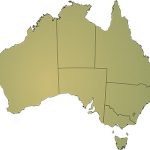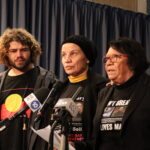What should you do if you’re caught drink driving?

Our video and blog post below talks about what should you do if you’re caught drink driving.
Drink driving is a serious traffic offence.
If you are caught drink driving you can face harsh penalties, depending on the amount of alcohol found in your system at the time.
If you have been charged with a drink driving offence, it is important that you find an experienced traffic lawyer to represent you, and that you are as well informed as possible about the penalties you face and any possible defences that might help you.
If you test positive on a roadside breath test, you will be taken to the nearest police station for further testing.
If further testing reveals a blood alcohol concentration over the legal limit, you will be charged with a drink driving offence and released.
You will receive a notice advising you when you will need to appear in court, and at this date you will have your case heard and receive the verdict and penalty from the magistrate.
Penalties for drink driving charges vary depending on whether you have been convicted of low range, mid-range or high range PCA.
It is likely that if you have been caught drink driving you will face a mandatory disqualification period of at least six months, and as much as five years for high range drink driving, particularly if you were involved in an accident.
You will also face fines, and in severe cases, a potential prison sentence.
There are a few things that can help you avoid receiving the maximum penalties for a drink driving charge, or even help you get your charges dismissed in some cases.
If you have a clean driving record with no history of previous traffic offences, this can help you get a more lenient sentence.
The penalties for drink driving offences are more severe if this is your second or subsequent offence in the previous five years.
There are certain procedures that police need to follow in order for their evidence against you to be allowed in court.
If you can prove that police did not follow the rules when they tested you, it is possible to request that they withdraw the charges or have them dismissed if the matter reaches court.
Let your drink driving lawyer know if the police tested you more than two hours after you were last behind the wheel, or if they tested you on your property or at your home, as this can mean their evidence is inadmissible.
In some cases, it may be possible to obtain a section 10 dismissal or conditional release order for a drink driving offence.
Section 10 dismissals and conditional release orders are admissions of guilt with no conviction recorded.
Your chances of getting a non conviction order can be increased by providing character references, and where applicable finishing a traffic offender program or sober driver program.
If you can show that you need to drive for your employment or to keep family commitments, you may be able to increase your chances of getting a non conviction order.
If you have been caught drink driving, your first step should be to contact a drink driving lawyer, who can advise you of the penalties you are likely to face, and what your best defence is.
It is possible in some cases to avoid a drink driving conviction and escape disqualification, and in other cases you may be able to avoid receiving the harshest penalty for your specific offence.
Going to court for a traffic offence?
If you are going to court for a traffic offence, call or email Sydney Criminal Lawyers anytime to arrange a free first consultation with an experienced, specialist traffic lawyer who will accurately advise you of your options, the best way forward, and fight for the optimal outcome in your specific situation.






